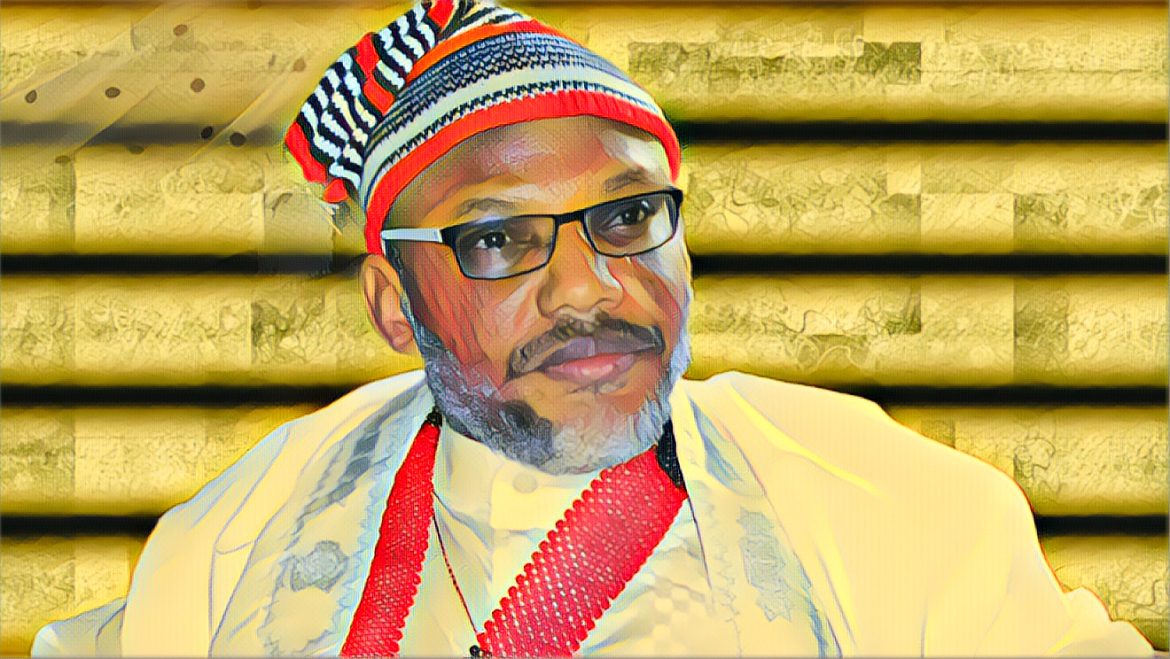Nnamdi Kanu, the incarcerated leader of the Indigenous People of Biafra (IPOB), has strongly dissociated himself from the surge of violence plaguing the southeastern region of Nigeria. Speaking shortly after a court session on Tuesday, where his bail plea was declined, Kanu conveyed a message of peace and promised a cessation of unrest in the Southeast if released from detention. He attributed the ongoing violence to his absence, suggesting that his release would herald peace across the region.
During an impassioned address following the court’s decision to deny him bail, Kanu emphasized his detachment from the violent activities attributed to IPOB members. He pledged a firm stance against anyone perpetrating violence under the guise of the IPOB movement. “Anybody committing crime in the east cannot go free,” Kanu asserted, underscoring his commitment to peace and order.
Kanu’s detention by the Department of State Services (DSS) has been a point of contention, with the IPOB leader suggesting that his imprisonment has indirectly facilitated the violence. He speculated that certain government factions might be exploiting the situation for financial gain through the perpetuation of insecurity. “They know if Nnamdi Kanu is outside, in two minutes this nonsense will stop,” he stated, indicating the influence he believes he holds over peace in the Southeast.
The IPOB leader also addressed accusations of violent activities conducted in the name of the group, declaring that true IPOB members would not engage in such acts. He warned that upon his release, any involvement in violence would have severe consequences, signaling his intent to restore peace swiftly.
The refusal of Kanu’s bail by the Federal High Court in Abuja has sparked discussions about the broader implications for peace in the Southeast. Justice Binta Nyako, presiding over the case, justified her decision by referencing a previous application refusal, advising Kanu to seek redress at the Court of Appeal.
This development comes amid heightened tensions in the Southeast, with military and civilian casualties raising alarm over the region’s stability. Kanu’s remarks reflect a complex interplay of political, legal, and social dynamics shaping the Southeast’s security landscape. As debates over his detention and the role of IPOB in regional violence continue, Kanu’s call for peace underscores the urgent need for dialogue and resolution to address the underlying issues fueling unrest.
Senate President Godswill Akpabio has hinted that mercenaries might be behind the recent killing of 16 soldiers in Delta State, adding another layer to the ongoing security challenges. Meanwhile, the National Assembly and state authorities are taking steps to address the surge in violence, the contentious issues surrounding Kanu’s detention, and the activities attributed to IPOB.
As Nigeria grapples with these multifaceted security challenges, Kanu’s statements from detention highlight the deep-seated grievances and complexities facing the Southeast. His promise of peace, contingent upon his release, sets the stage for further discussions on reconciliation, governance, and the path to sustainable peace in the region.
Source: The Guardian


